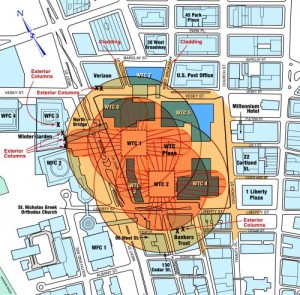 It was mid-February, 2006, and western Darfur was hot as fire. The colonel was an American. He’d been seconded to the region’s doomed African Union peacekeeping mission, one of dozens of Western military personnel – Canadians, Germans, French airmen in smart blue jumpsuits, even a lone Cuban (compared with Sudan, Cuba is definitely the West) – serving as advisors to the underpaid and underequipped African Union force.
It was mid-February, 2006, and western Darfur was hot as fire. The colonel was an American. He’d been seconded to the region’s doomed African Union peacekeeping mission, one of dozens of Western military personnel – Canadians, Germans, French airmen in smart blue jumpsuits, even a lone Cuban (compared with Sudan, Cuba is definitely the West) – serving as advisors to the underpaid and underequipped African Union force.
I can’t recall where the colonel was from. He and his family were based in Italy and they hated it. “It’s the language,” he said. “And it’s the food. My kids don’t like the food. Neither does my wife. Or me, for that matter. It’s a lot of McDonald’s, that’s how we’re getting by.”
He thought the Darfur stint might help his career, and he wanted out of Italy for a while. As a career Army man, the shortcomings of the African operation seemed to pain the colonel. There was the terrible heat endured by the Ugandan grunts in the protection force, who spent six hours a day seated on metal benches as they rode through the desert scrub in the back of AU pickup trucks, dropping sheets of sweat under their helmets and steel-plated body armor. “They can’t put a canopy over those things?” the colonel said. There was the terminal muddle and disarray among some of the African military officers, who argued over mess hall privileges with the African police monitors, to whom they felt superior. Unlike some of the other foreigners, the colonel seemed to wince without bigotry.
It was my first day in Darfur, and as we stood talking outside the portable office modules at the African Union base, it soon it became clear that we had little to talk about. The colonel lacked any useful insight into Sudan, and I lacked his antipathy for the language, food, and culture of Italy.
By this time the big wave of genocide, or ethnic cleansing, or crimes against humanity – whatever you want to call it – had already washed over the region. More than three million people were still displaced. The Darfur rebel movements were fragmenting into mutually hostile gangs, even as Washington and London tried to convince their leaders to sign a peace agreement with the government in Khartoum. It was only a matter of time before the rebels came around, Western officials said, and then Darfur would prosper. The rebel leaders weren’t so sure. “If I had known what was going to happen to my people, I would not have started this revolution,” Abdel Wahid al Nur, founder of the Sudan Liberation Army, would later say.
As we were both Americans, it seemed only natural when the colonel asked if I had been present in New York on September 11. “Yes,” I said, “my office was at police headquarters, not far from the trade center.” This was true enough, but September 11, 2001, was also the day of New York’s mayoral primary; I had just walked into my employer’s main newsroom, uptown, for a long day of election rewrite when the first jet struck. I was still trying to process what had happened when my editor yelled: “Did you see that? Another plane! I need a body count and claim of responsibility.” He pointed to the elevator: “Go, go, go!”
There were no taxis. The trains had stopped running. Soon enough I was sprinting, jogging, and then walking south from 59th Street, a bit part of that reverse migration of off-duty cops, firemen, paramedics, and journalists heading toward the disaster even as thousands streamed away from it. I rented a bicycle and a Kryptonite lock on 14th Street and reached lower Manhattan, winded and sore, as the second tower collapsed.
“What do you think of Seven World Trade Center?” the colonel asked.
“Well, it was daft to put the mayor’s command center there,” I said, remembering those romper-stomper Giuliani days. “Everybody said so at the time.”
“What,” he asked, “do you think of the controlled demolition?” For a moment, I recalled the mournful handshake that a deputy fire commissioner, with whom I’d stoked a long-running feud, gave me on West Street the morning of September 12 while, a block away, smoke poured from the wreckage of 7 WTC. So many of his friends were dead.
“You don’t really believe that, do you?”
The colonel didn’t know. “You see those pictures of the Pentagon? There’s a website that says it was a missile. It’s pretty convincing. You look at the point of impact, and it doesn’t look anything like a plane. I think they got a missile through and the government doesn’t want people to find out.”
“Who got a missile through?”
Again, he didn’t know. Iran, maybe. Or Iraq. That at least would explain the invasion. In a few weeks, the colonel’s tour in Darfur would come to an end, and he’d be back in Italy, hoping for promotion while he sheltered his family from osso bucco.
I’ve learned a lot in the ten years since the September 11 debacle was simmered to a reduction and force-fed across the world. The most important thing I’ve learned – again and again, in Asia, the Middle East, Africa, Europe, and the United States – is what an incurable load of simpletons we are. There is no end to our condition.